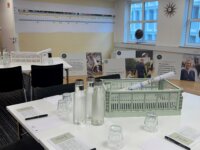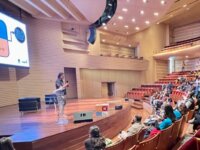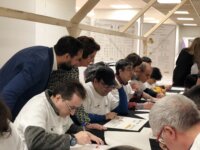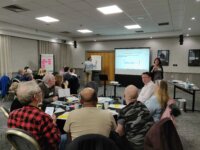This project aimed to translate new legislation on occupational injuries into a citizen-oriented service journey, helping those injured at work to re-enter the workforce through education. Through co-creation, we designed the future customer journey, designing a unified service that involved various stakeholders.
Innovation Tag Opengov: co-creation
The Conectando Saberes ('Connecting Knowledge') Academy of the Specialised Protection Service for Children and Adolescents presents a novel way of training people who intervene directly in the protection of the rights of children and adolescents using a digital platform. The design was co-creative, taking into account the vision and experience of those who are in direct contact with children and their families.
Public innovation Labs have been at the forefront of the transformation of public innovation ecosystems in different countries and cities. However, they are knowingly sensitive to changes in public administrations and to political decisions. Our Spider strategy (Araña) seeks to strengthen and give sustainability over time to public innovation based on the creation of networks and ecosystems and the non-exclusive dependence on innovation units or Labs, thus diminishing the related aforesaid…
There are plenty of innovative initiatives that never manage to reach the public sector, generating inequalities in access and quality in the provision of solutions. GovtechLab Madrid is the first open innovation Lab located inside of the Community of Madrid. The focus of the Lab is on reducing the barriers and accompanying both the supply and demand sides in finding solutions and opportunities to implement them.
Easy Government invites people with disabilities to redesign legal and administrative texts (i.e., laws, subsidy formulares) using an easy-to-read approach based on pictograms, simple words, short paragraphs, and the creation of new products that are simpler and clearer for all audiences (i.e., seniors, immigrants, people with low reading comprehension, children). With the lenses focused on diversity and inclusion we seek to address complex issues faced by these population groups.
The IDT is a multi-stakeholder dialogue methodology whose objective is to generate spaces for collaborative co-creation to design public policy proposals for a locally development challenge.
The IDT Yumbo worked on a challenge prioritized by citizens. The causes were identified and solutions were proposed, creating a policy prototype. Through advocacy platforms, the prototype was presented to the local and regional government to incorporate the proposal as part of the Municipal policymaking.
Scottish Government commissioned research to explore public attitudes to agriculture, environment and rural priorities in Scotland, to develop replacements to the Common Agricultural Policy. The research involved a number of strands of data collection, with each element building on the other, and culminating in citizens' forums to develop a detailed understanding of public priorities. The research is being used by policymakers as a new Scottish Bill is in the process of being developed.
Societal challenges such as demographic change affects rural areas in particular. The Social Foresight Lab is an innovative participatory approach towards rural development and technology transfer to address these challenges. It combines foresight, needs assessment and strategy development. Rural areas benefit, as it takes into account regional characteristics, initiates new cooperations among regional stakeholders, and integrates technological and social innovations into regional development.
Case Study
Libellula – a civic monitoring lab and a format to build and sustain a local civic monitoring…
Libellula is a laboratory for civic monitoring of local public spending and a format to build and sustain a local civic monitoring coalition. The first lab is based in Messina, Sicily. Moving from monitoring a specific case, Libellula aims at building a civic multi-stakeholder coalition which, while monitoring, simultaneously cultivates skills and capabilities of those involved to advocate for transparent and collaborative public spending in order to address the misuse of public money.
Citizen-centric Municipal Governance Scorecard is an innovation for improving local good governance. The main objective is furthering local good governance through transforming good governance principles into practical, measurable processes and actions. The model consisted of 227 indicators for the seven principles along decision-making, resource allocation, service delivery and institutional capacity stages. The data collection is geared for citizen use, based on digitally available…




